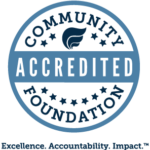Working Together for Social Justice; A Response to Charlottesville
Aug 18, 2017
Dear Partners, Friends and Supporters,
For Fairfield County’s Community Foundation, “Together We Thrive” is more than just a tagline. We firmly stand against the tragic violence and terrorizing rhetoric witnessed last weekend in Charlottesville and with your support we will continue to advance equity in opportunity for all members of our community and beyond. As a member of the Board of Directors of the Connecticut Council for Philanthropy, I wholeheartedly endorse the thoughtful statement released by the Council. We have much work to do and we will do it together.
Juanita T. James
President & CEO
Fairfield County’s Community Foundation
Originally Published on Connecticut Council for Philanthropy. View here.
On behalf of the Connecticut Council for Philanthropy, Judith Meyers, board chair, Michael Johnston, board vice chair, and Karla Fortunato, president, penned the following response to the riots in Charlottesville.
If you get close to things that are painful,
and difficult, and unequal, it will hurt you. It will make you uncomfortable.
But, in discomfort, I want to tell you there is a power.
— Bryan Stevenson
Like so many of you, the staff and board at the Connecticut Council for Philanthropy were horrified by the riots in Charlottesville — the hate-fueled terrorism, violence, and the deaths and injuries that resulted. Some of our Connecticut colleagues have responded to these events with powerful pieces, including postings from Frances Padilla with the Universal Health Care Foundation, Martha McCoy with Everyday Democracy, Michael Johnston with the Jewish Community Foundation of Greater Hartford, and Ellen Shemitz with CT Voices for Children. Many national colleagues have spoken out too, including the National Center for Responsive Philanthropy, the Funders for LGBTQ Issues, and Grant Oliphant with The Heinz Endowments.
We believe that all ethical people in our society ought to reject hatred in all forms and that there is no moral equivalency between neo-Nazis and white supremacists on the one hand and those protesting against hate on the other. We feel it is critical to point out that these hate groups have been empowered by our current social and political environment and represent a real and meaningful threat to democracy and our country’s founding principles. Finally, we believe that philanthropy has an obligation to recognize this threat and speak to it directly. Therefore, we stand allied with our colleagues to denounce hatred, bigotry, and white supremacy in our communities, our state, and our country.
What we saw in Charlottesville might be most visceral and repugnant manifestation of racism and bigotry in the United States but it is not the only manifestation. We also see racism and inequity reflected in policies that racially segregate our communities and exacerbate inequities in wealth and opportunity.
At CCP, we are committed to advancing and supporting philanthropy that improves the public good. At moments like this, our values of equity, diversity, and moral clarity guide our work. Over the course of 2017, CCP’s Diversity, Equity, and Inclusion Committee has been meeting to develop programs, conversations, and other activities that will help the state’s philanthropic community deepen their understanding of how racism and other inequities exhibit themselves in the state and what philanthropy can do to address it. Next month, CCP is partnering with the Open Communities Alliance to host a conversation with historian and legal expert Richard Rothstein about the history of housing segregation in the United States. Rothstein’s talk will be followed by a discussion focused on how philanthropy can engage to address this form of racism. We hope that you’ll consider joining us there.
There are many national organizations that have developed excellent resources to support philanthropy deepening its understanding and work on diversity, equity, and inclusion. These include the D5 Coalition and the Philanthropic Initiative for Racial Equity. The Washington Regional Association of Grantmakers pulled together an excellent web-based resource called, “Putting Racism on the Table.” CCP has compiled a short list of resources that we think will be helpful and we welcome pointers to additional resources.
In Connecticut, we are lucky to have many foundations at the forefront of advancing social justice, working hard to address racism and inequity in our policies and in our communities. But there is much more work to be done. At CCP, we want to help our members work together to support a more equitable Connecticut and this means helping more foundations integrate diversity, equity, and inclusion into their grantmaking. If you have ideas about how we can better do this, we invite you to share them. This is work we must do together.

